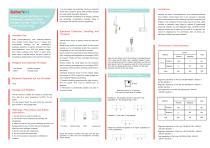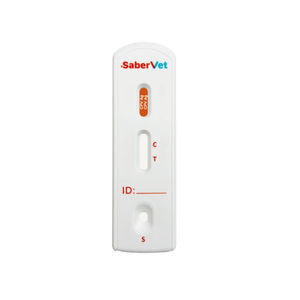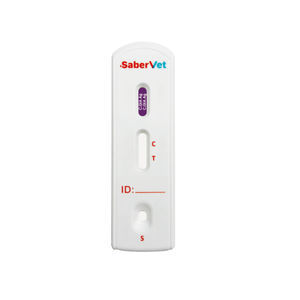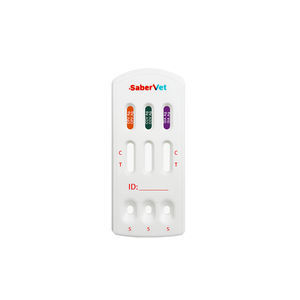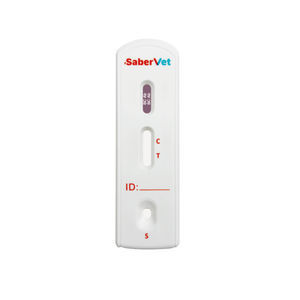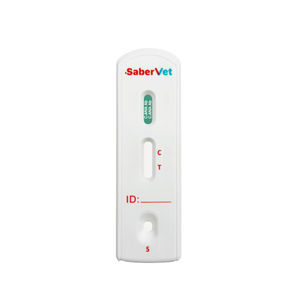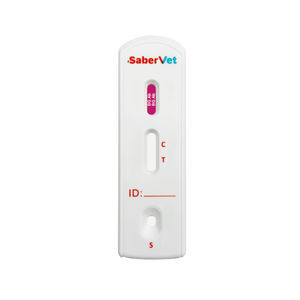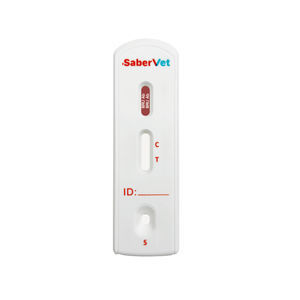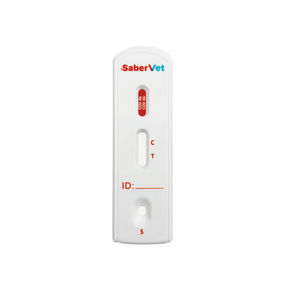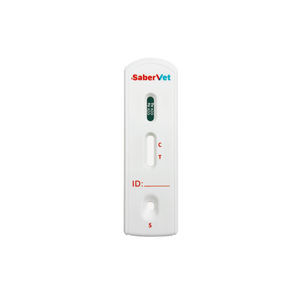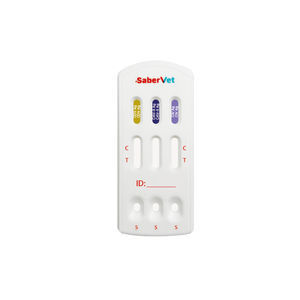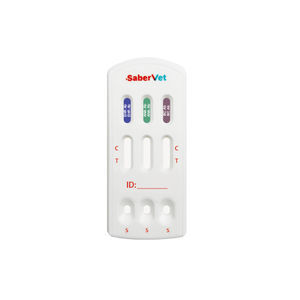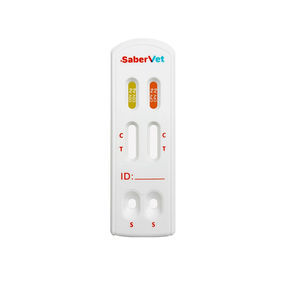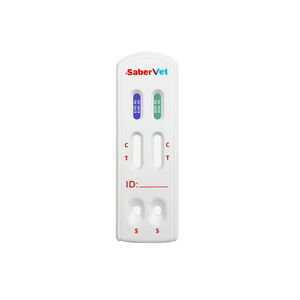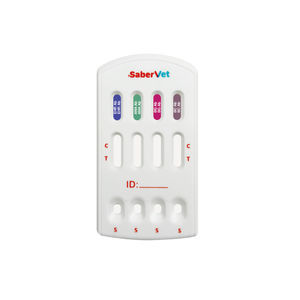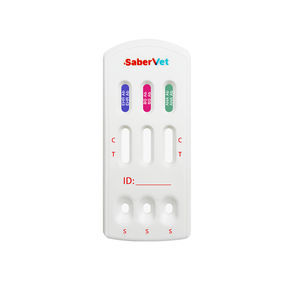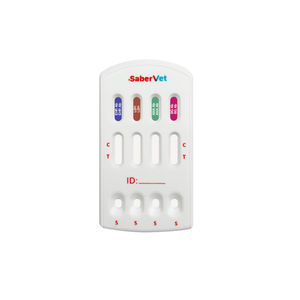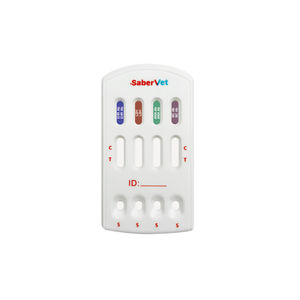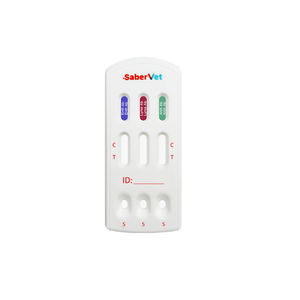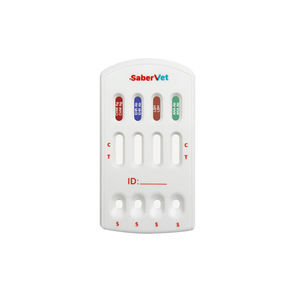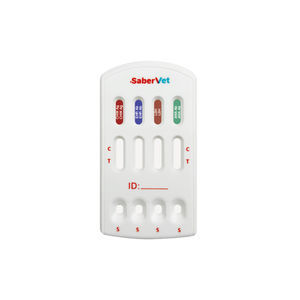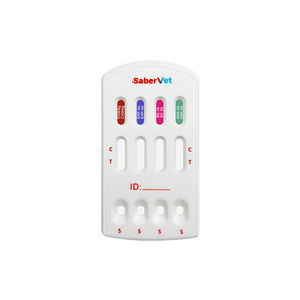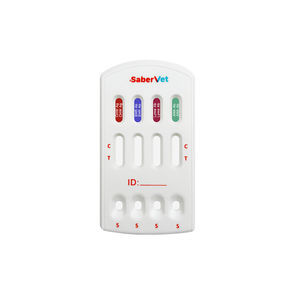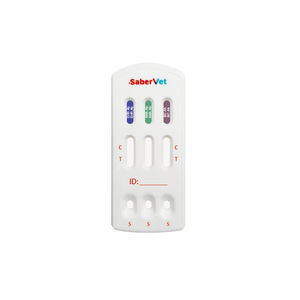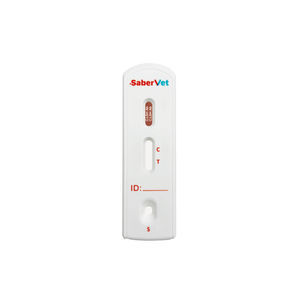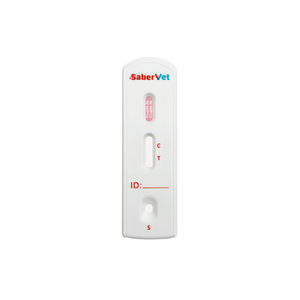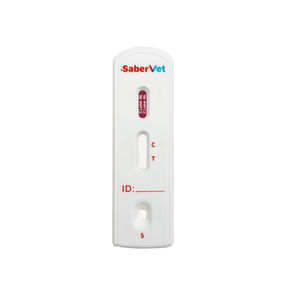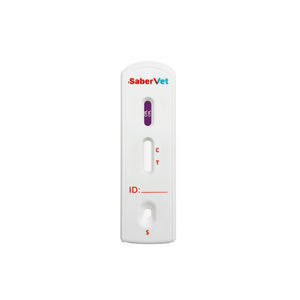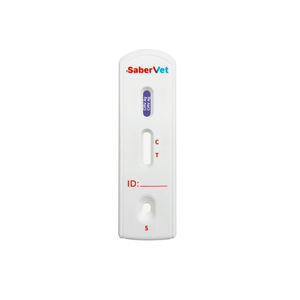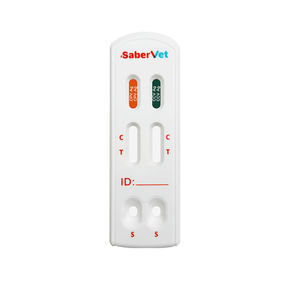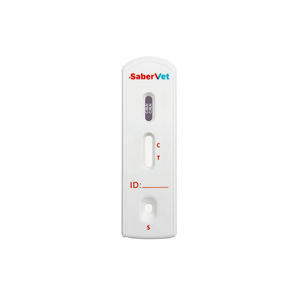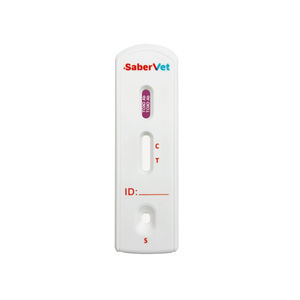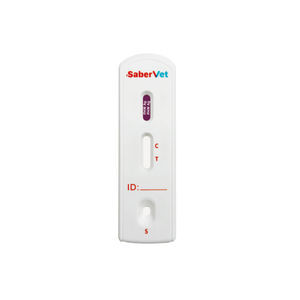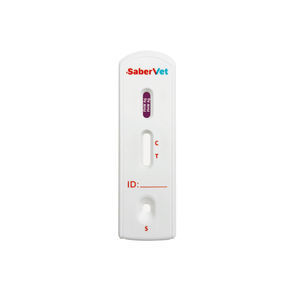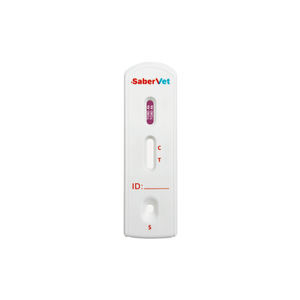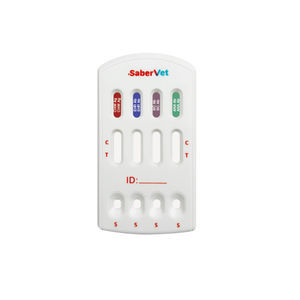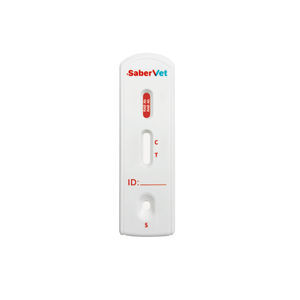
- Laboratory
- Laboratory medicine
- Rapid sepsis test
- Hangzhou Antigenne Technology Co. Ltd
- Company
- Products
- Catalogs
- News & Trends
- Exhibitions
Rapid sepsis test Sabervetfor caninesEhrlichiaurine
Add to favorites
Compare this product
fo_shop_gate_exact_title
Characteristics
- Applications
- sepsis
- Patient type
- for canines
- Micro-organism
- Ehrlichia
- Sample type
- urine, blood, serum, plasma, whole blood, bone marrow
- Analysis mode
- immunoassay, lateral flow
- Format
- cassette
Description
The SaberVet Canine Ehrlichia Antibody Rapid Test offered by Antigenne is a lateral flow immunoassay intended for the qualitative detection of Ehrlichia antibody (EHR Ab) in canine whole blood/serum/plasma sample.
Description
Canine ehrlichiosis is an infectious disease characterized by sepsis caused by tick-borne Ehrlichia canis. Domestic dogs, wild dogs, and rodents are hosts for Ehrlichia canis. Dogs of all genders, ages and breeds can be infected with this disease.
1.Clinical symptoms
The clinical signs of canine ehrlichiosis can be divided into three stages: acute, subacute and chronic. In the acute stage (1-3 weeks) usually manifested as fever, anorexia, weight loss lymph node enlargement, nosebleed, bleeding tendency (such as subcutaneous hemorrhage, blood in urine). In the subacute phase (weeks to months) clinical symptoms are mild, but blood tests show thrombocytopenia and anemia. In the chronic phase, severe weight loss, anemia, bone marrow suppression (resulting in thrombocytopenia), and immune-mediated diseases (e.g., polyarthritis) are seen.
2.Transmission
Canine ehrlichiosis is mainly transmitted by blood-sucking insects, especially ticks. The tick acquires the pathogen by biting a sick dog and then spreads it to other dogs by sucking blood after becoming an adult. The disease can also be transmitted through direct contact with the blood of sick dogs.
3.Clinical Diagnosis
Diagnosis of canine ehrlichiosis usually involves a combination of clinical signs, hematology, and specific laboratory tests. Hematologic tests show thrombocytopenia, anemia, and leukopenia or leukocytosis.
Exhibitions
Meet this supplier at the following exhibition(s):
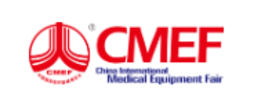
Other Hangzhou Antigenne Technology Co. Ltd products
Canine
Related Searches
- Blood rapid diagnostic test
- Rapid lateral flow test
- Immunoassay rapid diagnostic test
- Cassette rapid diagnostic test
- Virus rapid diagnostic test
- Serum rapid diagnostic test
- Plasma rapid diagnostic test
- Infectious disease rapid diagnostic test
- Whole blood rapid diagnostic test
- Rapid respiratory infection test
- Urine rapid screening test
- Bacteria rapid diagnostic test
- Rapid feces test
- Clinical rapid diagnostic test
- Nasal rapid diagnostic test
- Obstetrical/gynecological rapid test
- Rapid oral flu test
- Dog rapid test
- Laboratory rapid diagnostic test
- Coronavirus rapid diagnostic test
*Prices are pre-tax. They exclude delivery charges and customs duties and do not include additional charges for installation or activation options. Prices are indicative only and may vary by country, with changes to the cost of raw materials and exchange rates.


